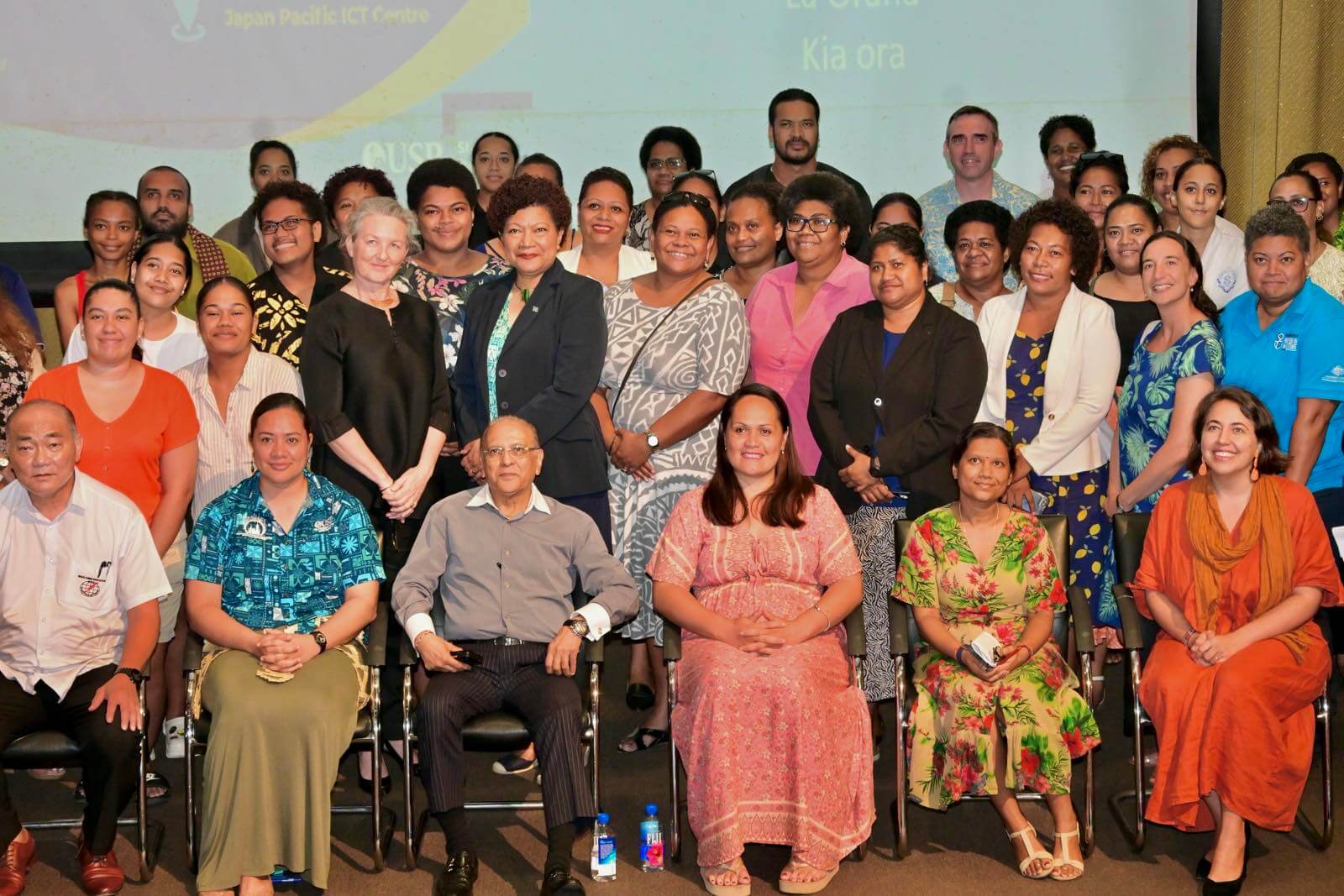Related News

New and existing students at The University of the South Pacific had an opportunity to listen and engage with Pacific women who are breaking barriers and creating pathways for young girls in Science, Technology, Mathematics, and Physics (STEMP).
Through the World Bank Pacific Women in Power (PWIP) Programme, The University of the South Pacific (USP) hosted an event organised by the World Bank in collaboration with the Pacific Power Association and The Pacific Community (SPC) where university students were able to gauge the critical role women play in STEMP, especially in the transition to renewable energy.
Titled ‘The Future of Work: Women Can Lead The Pacific’s Power Transition’, the event highlighted that “women’s employment is crucial for economic growth in the Pacific and potential benefits of better gender equality in the energy sector include better financial performance, innovation, safer environments, and improved retention in the sector.”
Hosted at the USP Laucala Campus’ Japan ICT Lecture Theatre, the seminar aims to empower girls to make a difference in the STEMP fields and help transform the Pacific energy sector.
Opening the event on Tuesday (February 27), USP Vice-Chancellor and President Professor Pal Ahluwalia stressed that such a seminar amplifies women’s voices and advocates for gender equality.
“It also reaffirms the transformative power of collaboration beyond these walls. We stand alongside the World Bank, the Pacific Power Association, and the Pacific Community (SPC) to amplify the impact for Pacific societies free of poverty on a livable planet. But collaboration extends further.”
Professor Ahluwalia said the Pacific energy sector is evolving rapidly, with renewable energy, smart grids, data analytics, and sustainability being the new frontiers.
He encouraged students to “Embrace technology, data literacy, and interdisciplinary thinking. Blend your technical prowess with communication skills, adaptability, and a global mindset. Engage with industry experts, attend workshops, and intern with energy companies. Understand the nuances, challenges, and opportunities. Remember, knowledge gained at university must translate into real-world impact”.
Launched in 2023, PWIP challenges norms and fosters advocacy for gender equality.
World Bank Acting Country Manager Bonnie Ann Sirois explained that PWIP’s comprehensive goals include:
• Building evidence and data-driven business cases and targets.
• Engaging champions for advocacy.
• Developing multi-year skill and employment programmes.
• Enhancing capacity building and knowledge management across different groups in the sector.
“This is not merely an initiative. It is a movement that seeks to amplify the role and voices of women in engineering, science, and leadership roles within the energy sector. Our goal is to assist the energy sector and educational institutions in dismantling barriers and creating pathways for women to thrive in careers in the energy sector.”
Despite existing challenges, a new generation of women is emerging in the Pacific’s energy sector, with students graduating as electrical and mechanical engineers.
Based on their research, Sirois stressed that closing the gender employment gaps could, on average, increase GDP per capita by 22 per cent in Pacific countries.
“As we discuss the future of work, we must emphasise the importance of collaboration across sectors. Universities are pivotal in shaping the next generation of leaders by connecting academia, industry, and policymakers to drive change.”
Fiji’s Permanent Secretary of the Ministry for Women, Children and Social Protection, Eseta Nadakuitavuki, said, “Women’s full and equal participation in the energy sector, particularly in clean energy, is integral to environmental sustainability and economic development in our region.”
She added, “An inclusive and expanded energy sector will also translate to greater economic empowerment by increasing women’s access to paid employment and skills training in clean energy-related endeavours.”
The seminar also engaged the service of women in STEMP from the Pacific as panellists to share their experiences with university students and the vital contribution of girls in the energy and engineering fields, among others.
The panellists include Sarafina Lesa from the Electric Power Corporation in Samoa, Mele Lupe Vakau’uta, a third-year engineering student at USP, Teiitia Nia of Te Aponga Uira, Cook Islands Power Utility, Dr Ravita Prasad from the Fiji National University, and Alain Ouedraogo and Inka Schomer from the World Bank.
Helle Buchhave, a Senior Social Development Specialist who leads the World Bank-implemented PWIP, said, “We are gathering data and helping clients design and invest in future and current innovations, partnerships, and policies to increase women’s participation in the energy sector.”
She added that preliminary findings of data gathered across 14 Pacific energy utilities reveal that only 18 per cent of the labour force is female, and only 5.4 per cent of engineers are women.
Buchhave emphasises that this underrepresentation of women risks reinforcing the norm that the energy sector is more suited for men, which could lead to a reluctance among employers and female students and their families to consider the energy sector as a viable workplace for women.
The PWIP stakeholders encourage students to embrace collaboration across disciplines and for Engineers, economists, and environmentalists to forge connections throughout their careers.
A call was also made to industry experts to mentor students and ensure female and male students are given equal opportunities to contribute to the energy sector.